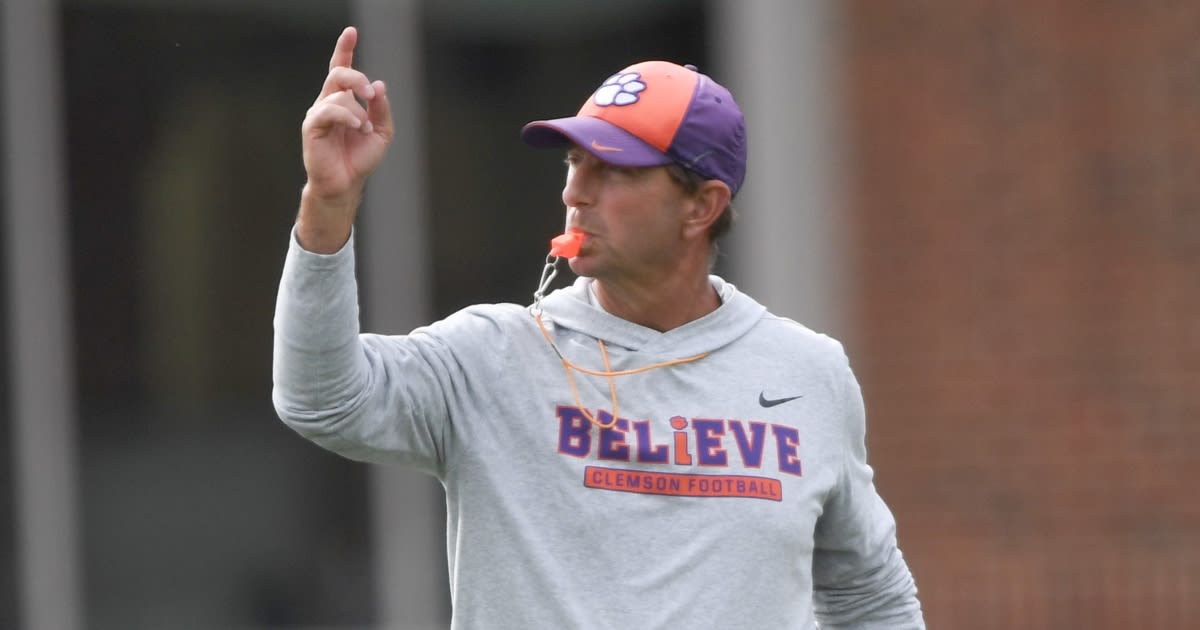Dabo Swinney's Bold Stance on Rules and Consequences

The New Era of College Football
The House v. NCAA settlement, which ended the NCAA’s “amateur” model and introduced revenue sharing, officially became effective on July 1. This change allows FBS programs that have joined the settlement to distribute millions in direct payments to their athletes. At Clemson, longtime head football coach Dabo Swinney has expressed confidence in the new structures put in place to manage this transition.
Swinney mentioned the College Sports Commission, an enforcement body created to oversee the terms of the House settlement, and NIL Go, a Deloitte online portal designed to assess the “fair market value” of third-party NIL deals. He stated, “I do. I do. Because I think the commissioners and presidents put all that stuff together. They spent a bunch of money to create this entity. I think we’ve got to give it a chance. So, yeah, I’m optimistic.”
He emphasized that while the infrastructure is in place, it will take time for everything to settle. Swinney also noted that some teams might have higher caps this year due to front-loaded funds, but the system will stabilize over time. He added, “With the settlement, regardless, you might have a $300 million budget, but you’ve got $17 million you can spend on football. Or you could spend the whole $20 (million) if you don’t want to give anybody else anything. Whatever it is, it goes up 4-percent every subsequent year, and there’s a 10-year deal.”
Despite his optimism, both the College Sports Commission and NIL Go are facing criticism. Some NIL collectives are preparing for legal battles after House attorneys criticized the NCAA and the CSC's guidance on third-party deals. A letter from House attorneys to NCAA and power conference officials asked them to “retract” previous guidance, indicating ongoing tensions.
Swinney acknowledges that the current situation is still chaotic, rating it a 3 out of 10. He believes the continuity and structure at Clemson have helped mitigate some of the challenges. However, he also notes that everyone involved is hopeful for a more organized landscape that supports the education of young athletes.
SEC Commissioner Greg Sankey Addresses Concerns
Just over two weeks after the House v. NCAA settlement took effect, questions remain about its implementation. A significant focus has been on NIL Go, the clearinghouse launched as part of the agreement to evaluate NIL deals exceeding $600.
SEC commissioner Greg Sankey addressed these concerns during an interview on The Paul Finebaum Show. He acknowledged the frustration surrounding the new system but highlighted the importance of the changes. Sankey described the moment as both wearying and exhilarating, emphasizing the ongoing implementation process.
He mentioned a recent video conference with presidents and chancellors, including Bryan Seeley, the new executive director of the College Sports Commission. Sankey noted that Seeley has already hired two staff members, underscoring the commitment to the settlement. He also discussed the back-and-forth between the CSC and plaintiffs’ attorneys regarding the guidance provided, stating that they will continue to work towards a mutual understanding.
Sankey reiterated that the settlement represents a significant shift in college sports, one that requires time and collaboration to fully realize its potential. As the new framework takes shape, the focus remains on creating a more structured and equitable environment for student-athletes.
Post a Comment for "Dabo Swinney's Bold Stance on Rules and Consequences"
Post a Comment